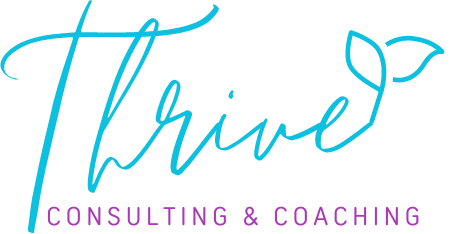Your lifespan could be longer and your health better with strong social bonds in your growth experience. Research shows these connections lower the risks of heart disease, strokes, depression, and dementia. This makes sense because our personal development links closely to the people in our lives.
My years of learning about personal growth have taught me something valuable. Communities do more than catch us when we fall – they push us forward, both as individuals and as groups. People who feel connected, valued, and supported enjoy better mental and physical health. These groups give us more drive, better access to resources, and a chance to learn from different views. The research backs this up too – social support makes a real difference in mental health and how satisfied we are with life.
This piece takes you through community’s role in our lives. You’ll learn why spiritual growth works better in groups and see the clear contrast between growing alone and growing together. Real people’s stories show how community ties sparked amazing personal changes, and you’ll pick up some proven strategies for community growth along the way.
Why Community Matters in Your Growth Journey
Communities aren’t just nice to have—we need them to thrive. Harvard’s groundbreaking 80-year study revealed something surprising. The #1 key to happiness isn’t success, wealth, or even good health. It’s positive relationships [1]. This research confirms what we already know deep down: humans need to connect with each other.
What role does community play in our lives?
A strong community helps us handle life’s tough moments. People who support us are a great way to get prayer, encouragement, and practical help when times get rough [2]. The sense of belonging we get from community plays a vital role in our mental health [3].
Research shows people with strong community ties feel less stressed and anxious [4]. The benefits go beyond mental health. People in strong communities usually have lower blood pressure, better cholesterol levels, and stay at a healthier weight [3].
Why is spiritual growth important in a group setting?
The Bible shows us how God works through groups more than individuals. Jesus said it best: “For where two or three are gathered together in my name, there am I in the midst of them” (Matthew 18:20) [5]. This promise shows why we grow spiritually better together.
Groups help us stay accountable and motivated better than going solo. Small groups let members keep each other on track with their beliefs [2]. Learning in a group lets everyone share what they know. This guides us to deeper understanding as we learn from each other’s experiences and viewpoints [2].
The difference between growing alone vs. growing together
Growing alone versus growing with others shows a clear difference. Going solo often creates what some call the “Only Lonely” [1]. The numbers tell the story – 82% of trained coaches shut down within two years. Loneliness ranks as the top reason coaches burn out [1].
Growing together lets us tap into many people’s experiences instead of relying on our limited viewpoint [6]. Support groups help people feel less isolated and promote growth [6]. Community creates a safe space where people can be vulnerable, trust each other, and build real connections [1].
Growth with others doesn’t just happen faster—it touches everything in our lives in a more lasting, comprehensive way.
Types of Communities That Support Growth
Finding the right community plays a significant role in your personal development. Several types of growth-focused communities exist today. Each offers unique benefits based on what you need and want to achieve.
Online communities and digital tribes
Digital tribes bring people together based on shared interests instead of demographics. Age, gender, and income don’t matter here [7]. These virtual communities give you support whenever you need it – something you can’t get from meeting in person [8]. Here are some platforms that help people connect:
- Success Breweries community has over 1,000 like-minded people from across the globe who want to grow personally and professionally [9]
- Habits Garden on Discord brings together achievers who want to “get 1% better every day” [9]
- Mind Cafe’s After Hours free community connects more than 600 people who help each other become their best selves [10]
Local support groups and meetups
Meeting people face-to-face creates powerful connections. These self-improvement groups usually meet at public places or community centers. They tackle various challenges through group-based solutions [8]. You’ll find thousands of these communities on Meetup.com, including 61 self-help groups with over 32,160 members [11]. Members often text each other daily to stay accountable and keep moving forward [12].
Professional and career-based networks
Career-focused communities help industry professionals grow together. Career Communities group similar careers based on interests, skills, and qualifications [13]. These networks let you share knowledge with others and stay updated on industry trends [14]. Here’s something interesting – about 70-80% of open positions never make it to job boards. They get filled through networking and internal references instead [14].
Faith-based and spiritual communities
Spiritual growth communities give us a safe place to explore life’s meaning. Healthy faith groups welcome different personalities, experiences, and abilities. This variety helps everyone build a deeper relationship with God [15]. Research shows that being part of religious activities helps reduce stress, anxiety, and depression [3]. These groups often promote healthier lifestyle choices and stand ready to help during tough times [3].
Pick a community that matches your current growth needs. That’s what matters most.
How Community Drives Real Change
Community involvement does more than make us feel good—it brings real, measurable changes to our lives. People can see the power of community at work through specific ways that speed up personal growth.
Shared learning and skill-building
Community activities help us learn from different points of view that challenge what we believe and broaden our thinking. People who work on shared projects develop valuable professional skills like leadership, communication, and problem-solving [16]. Volunteer work is a chance to build job-relevant skills—companies that match volunteers to the right activities see their teams gain skills up to 16 times faster than others [17].
Accountability and motivation from peers
Accountability is “the adhesive that binds social systems together” [18]. Peer accountability works really well—small groups where members share goals and check in with each other make a big difference. Simple questions like “What wins have you had?” and “What do you need to reach your end goals?” create the right kind of pressure to keep everyone moving forward [19].
Access to new opportunities and resources
Your community network helps you connect with people outside your usual circles. LinkedIn data shows that people fill 85% of job opportunities through networking [16]. These connections give you access to:
- Information about unlisted positions
- Mentorship from experienced professionals
- Resources you might not find otherwise
Emotional support during setbacks
Emotional support is a vital shield against life’s challenges [20]. Strong communities help reduce loneliness, especially when you have difficult transitions or recovery periods [21]. This support builds resilience and helps people recover faster from inevitable setbacks.
Real Stories of Growth Through Community
A powerful community story exists behind every life-changing growth experience. These ground examples show how different communities can change lives dramatically.
Story 1: From isolation to confidence through a writing group
Loneliness goes beyond discomfort—it can be deadly and increases the risk of premature mortality by 29% [22]. Writers who join memoir classes create special bonds as they share their deepest experiences. These writing communities help members learn each other’s secrets and vulnerabilities quickly, which creates non-judgmental relationships [22]. Participants often express surprise when they write more words in their first hour at a retreat than they would alone [23].
Story 2: A career breakthrough via a professional network
“I hate networking” is a common first reaction from many professionals [24]. Notwithstanding that, people who overcome this discomfort find that networking builds trust and mutual support toward goals [25]. Recruiters notice professionals who maintain visibility in professional circles while searching for strong talent [25]. New opportunities emerge as contacts grow, since roughly 70-80% of open positions never appear in public listings but get filled through networking [25].
Story 3: Mental health recovery with peer support
Mental health recovery has made peer support more accessible to people. The focus remains on people with lived experience who help others facing similar challenges [26]. First-hand knowledge builds powerful credibility—someone who has been there saying “you’re not alone” creates emotional safety [26]. Studies show that peer support improves quality of life, reduces hospital readmissions, increases treatment adherence, and lowers relapse rates [26].
Story 4: Spiritual awakening in a faith-based circle
Faith communities asked “Who are we now?” during COVID-19’s isolation [27]. Many people experienced a “long COVID of the soul and spirit” after this period [27]. This challenging liminal space became transformative. Young people tried new spiritual practices during isolation [27]. Faith communities became places where people felt noticed, named, and known—they addressed our core human need to belong [27].
Conclusion
Learning from countless growth experiences reveals a clear truth: we can’t thrive in isolation. Community acts as both our anchor and sail. It provides stability during storms and pushes us forward in favorable winds. The evidence is compelling – from Harvard’s remarkable 80-year study to the real-life changes we’ve seen in writing groups, professional networks, peer support circles, and faith communities.
Most people try to direct their growth alone, not realizing this path often results in burnout and stagnation. People who adopt community practices grow faster, stronger, and more sustainably. Community doesn’t just improve our growth—it revolutionizes it completely.
Strong social connections provide real benefits beyond personal development. Research shows without doubt that strong community ties improve mental health, reduce stress levels, and even extend our lifespans. People who surround themselves with supportive individuals build resilience that helps them through inevitable setbacks.
Your growth experience needs more than personal determination—you just need connection. Your specific goals and needs determine whether you choose an online tribe, local meetup, professional network, or faith-based group. The vital step is finding people who celebrate your wins, help you learn from failures, and hold you accountable to your highest aspirations.
Community makes the difference between merely surviving and truly thriving. Stories throughout this piece show how isolation turns into confidence. Career breakthroughs happen through networking. Mental health improves with peer support. Spiritual awakening occurs in group settings. These stories prove that our growth multiplies when we share it with others.
Finding your community might seem daunting initially. Note that someone out there needs exactly what you offer just as much as you need them. This mutual exchange creates the magic that drives personal transformation. Take that first step today. Your growth experience awaits—and it runs best when shared with others.
References
[1] – https://habituelleleadership.com/growing-a-supporting-community/
[2] – https://www.clearview.org/blog/christian-life/7-benefits-of-joining-a-bible-study-group/
[3] – https://www.svchurch.org/benefits-wellness/the-power-of-belonging-five-ways-faith-communities-boost-well-being
[4] – https://www.linkedin.com/pulse/role-community-personal-growth-development-heygrowzilla
[5] – https://spiritualdirection.com/2023/07/21/is-group-spiritual-direction-a-good-thing-2
[6] – https://www.themissionpossiblelife.com/post/community-as-a-catalyst-growing-together-without-losing-yourself
[7] – https://tonicdigital.asia/digital-tribalism/
[8] – https://mensgroup.com/self-improvement-groups/
[9] – https://thehiveindex.com/topics/personal-growth/
[10] – https://medium.com/mind-cafe/a-free-self-improvement-community-of-400-people-fac053aec83e
[11] – https://www.meetup.com/topics/self-help/
[12] – https://gatheringofgoodpeople.com/community/
[13] – https://careerservices.pace.edu/channels/career-communities-interest-based/
[14] – https://voices.berkeley.edu/why-you-need-expand-your-professional-network
[15] – https://www.cru.org/us/en/train-and-grow/help-others-grow/discipleship/christian-community-support-spiritual-growth.html
[16] – https://ericreiersen.com/how-community-involvement-enhances-professional-growth-and-success/
[17] – https://www.trueimpact.com/social-impact-resources/bid/67234/developing-skills-through-volunteerism-and-pro-bono-service
[18] – https://pmc.ncbi.nlm.nih.gov/articles/PMC8600914/
[19] – https://thereasonandtheroad.com/why-peer-accountability-is-so-powerful-and-how-it-can-help-you/
[20] – https://www.apa.org/topics/stress/manage-social-support
[21] – https://kentuckycounselingcenter.com/the-power-of-support-networks-in-overcoming-lifes-challenges/
[22] – https://www.psychologytoday.com/us/blog/from-both-sides-of-the-couch/202401/warding-off-loneliness-by-joining-a-writing-community
[23] – https://blogs.lse.ac.uk/impactofsocialsciences/2020/09/02/from-isolation-to-inspiration-the-psychology-of-writing-in-communities/
[24] – https://hbr.org/2016/05/learn-to-love-networking
[25] – https://www.michaelpage.com.au/advice/career-advice/career-progression/top-12-benefits-networking-why-networking-important
[26] – https://www.denova.com/the-role-of-peer-support-in-mental-health-recovery/
[27] – https://baptistnews.com/article/faith-communities-are-undergoing-upheaval-awakening-and-maybe-transformation/



